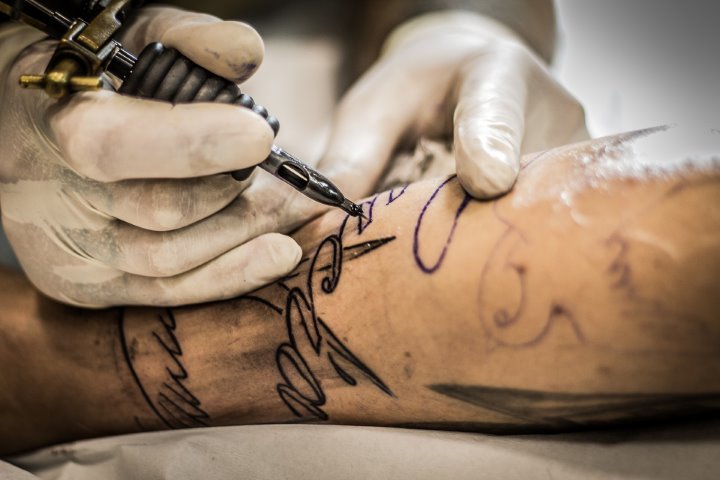
Private clients and advisers have many things to think about. From taxes to philanthropy to estate planning, the list can seem endless. One thing that’s unlikely to make the list is tattoos. But – particularly for high profile clients – thinking about the ink is becoming more important.
While the number of tattoo-related disputes remains relatively low, Richard Davies, a senior associate at Charles Russell Speechlys, thinks there will soon be a significant increase as brands start taking more awareness.
The 2011 Victor Whitmill v Warner Brothers case highlights this issue.
Tattoo artist Mr Whitmill sued Warner Brothers for its use of Mike Tyson’s facial tattoo in its promotion of The Hangover Part II. Mr Whitmill argued that he owned the copyright in the tattoo.
He was able to prove that Mr Tyson had signed an agreement confirming that Mr Whitmill owned all the rights in the tattoo, and was able to obtain a settlement from Warner Bros.
But, more recent case law has not been as straightforward.
The two most recent cases, both litigated in the US, have provided contrasting outcomes.
First, tattoo company Solid Oak Sketches (SOS) sued video game publisher Take-Two Interactive (TTI) for its reproduction of Le Bron James’ tattoos – which SOS’s artists had designed – on its NBA 2K videogame series.
In March 2020, a federal US district court in New York ruled in TTI’s favour, stated that while SOS did own the copyright in the tattoos, it had granted Mr James an implied licence to include his tattoos as part of his likeness when commercialising his image, and also that TTI’s use of the tattoos in the videogame constituted fair use.
However, in a separate case brought by tattoo artist Catherine Alexander, also against TTI, this time for its reproduction of wrestler Randy Orton’s tattoos in its WWE 2K videogame, a different outcome was reached.
The court found in favour of Ms Alexander, despite similar fact patterns between the two cases. In this case the court stated that it was not clear on the evidence submitted that a licence from Ms Alexander to Mr Orton to commercialise the tattoos had been granted, and that as it was a triable issue of fact, such a licence shouldn’t be implied.
Clearly, there is still a debate surrounding tattoos and their licensing.
One thing these cases all have in common is that they are very high profile. But, given the issue will likely only arise for clients in the public eye, any tattoo debates will probably attract significant attention.
This means there is a serious reputational management issues for all parties involved.
“No one wants to be embroiled in a lengthy, costly, and public legal case,” Mr Davies said. Depending on the intricacies of the case and how it is reported, there is a risk the public could turn against clients too.
Therefore, it is likely private clients will want to avoid these disputes.
Doing this might be easier said than done, however. This is a relatively new concept, particularly in the UK, so it can be difficult to know the best way to avoid future conflicts.
Mr Davies said one way clients are trying to protect themselves is through written contracts stating all parties’ rights and an agreement on any future usage or promotion involving the tattoo before any ink has even touched the body.
“The risk is being pushed back onto the individuals to make sure they have all the provisions and their rights in place,” he explained.
However, the majority still are not opting for contracts and only work if you’re already famous when you get the tattoo. Many people get tattoos long before they become famous, so would not think these issues would ever apply to them.
A further issue surrounds where the tattoo design comes from. For example, England footballer Jadon Sancho has a Simpsons tattoo on his right arm. Do the creators of The Simpsons have a claim to the design of the tattoo or does the tattoo artist still own the design?
This potentially adds a third party into any potential dispute and creates even more uncertainty.
Richard Davies
Given the complexity with proving ownership of tattoos and their designs, there is a chance that we could see NFTs created for tattoos in the future. Mr Davies described this as a “really interesting angle”, but warned that it could simply add extra complexity to the case.
“The same issues will still apply if the rights and provisions are not sorted first”.
A tattoo dispute is yet to come before the courts in the UK, although Mr Davies believes it is only a matter of time.
Additionally, a lot of the US cases have been settled out of court. This means there is little case law to give a serious indication of how these matters would fare in the legal system. It also means there is currently no guidance on what implied rights either the individual or tattoo artist has.
What advisers can do is advise their clients of the potential issues that could arise and encourage them to consider taking steps to prevent them.




